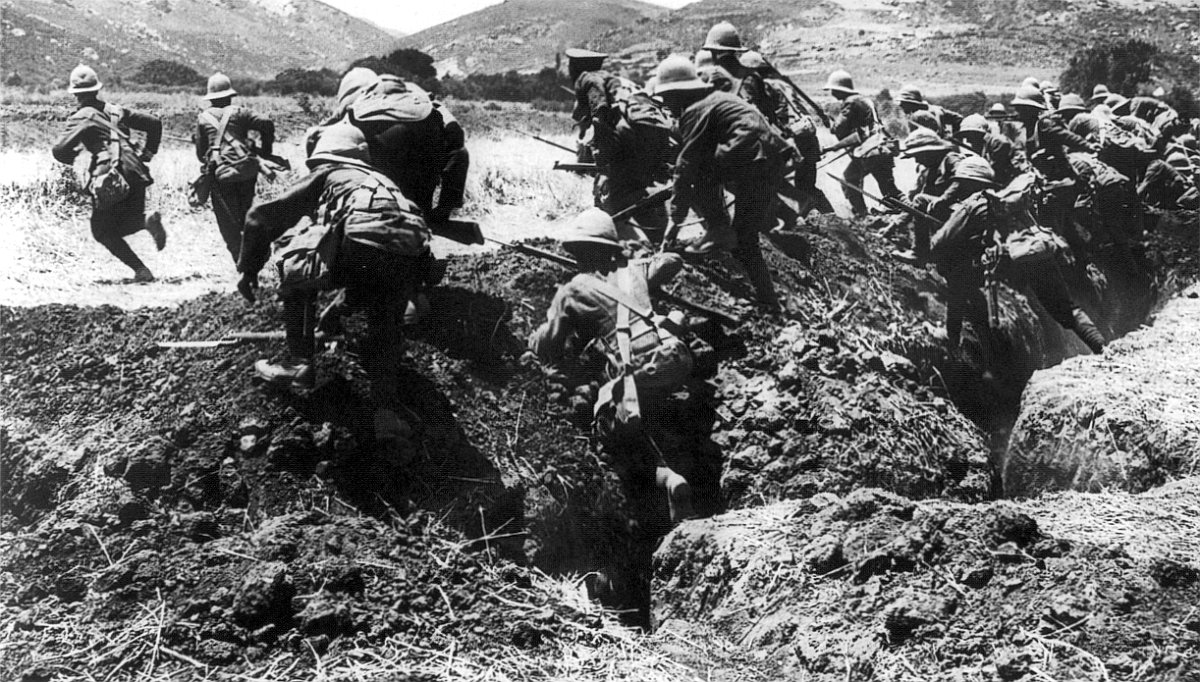
On this day in 1915, 78,000 soldiers of the Allied forces invaded Turkey during the First World War in what became the beginning of the violent Gallipoli Campaign. It would become a major allied failure and later formed the basis for the Turkish War of Independence.
In November 1914, Sir Winston Churchill conceived the idea for a new war front in the Dardanelles, in an attempt to try and end the First World War early. His vision was based around attacking the Turkish army, which would force the German army to split so that they could assist the weakened, inferior Turkish forces in the Dardanelles. By leaving their positions to help their comrades, a gap would be created on the eastern war front, creating a more manageable-sized army for the Allied forces to defeat. The Allies ultimately lost for a combination of reasons, including the invasion force landing in vulnerable, exposed areas, poor planning, and misunderstanding in communication. The invasion force was eventually evacuated and withdrawn to Egypt.
By the time the battle had ended in January 1916, more than 100,000 men had been killed, including 53,000 men from the Allied forces, many of which succumbed to disease in the hot, unhygienic conditions. Included in this figure were 2,721 New Zealanders. The Gallipoli Campaign is remembered in Australia and New Zealand on this day as Anzac Day, becoming a national holiday in New Zealand in the 1920’s. The Gallipoli Campaign is also credited by Australians as being the birth of their nation, as it was the first military action the country had found itself involved with.
